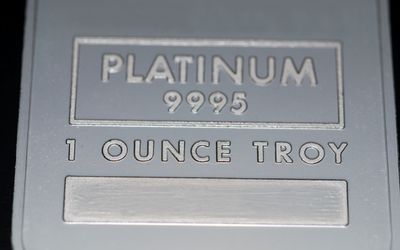South Africa (SA) and Russia's plans to establish a platinum bloc may benefit Zimbabwe, analysts said.
They said the Organisation of Petroleum Exporting Countries (Opec)-style unit will uplift local platinum miners as they are mostly owned by SA-based firms and do the country good as it holds significant reserves of the commodity.
Zimbabwe holds the second largest known platinum reserves in the world after SA.
SA and Russia are in a move to emulate Opec - a cartel whose members are the biggest oil-producing countries - in platinum production to coordinate exports, influence and promote price stability of the precious metal.
Last month, the two countries signed a Memorandum of Understanding with regards to the bloc.
According to international auditing and financial advisory firm KPMG, SA produces about 70 percent of the world's platinum while Russia supplies around 40 percent of palladium, a platinum group metal used in automobile exhaust systems.
"This cartel-like concept would be formed to, over the long run, control supply, promote price stability at a premium to current platinum prices," said Issis Mwale, a Harare-based economist.
"Zimbabwe will not only benefit financially but also stand a chance of being a member in the bloc which could, based on the prediction of stable revenue, more easily embark on their economic planning for development and social welfare," she said.
The concept is "plausible and seems logical, especially given heightened resource nationalism around the world," she told Business Live. Another analyst from financial group AfrAsia Zimbabwe Holdings (Afrasia), who preferred anonymity, said the earlier SA and Russia effect the plan the better as platinum miners are currently price takers.
"There are shared sentiments that as an industry there is need to critically think about supply-demand conditions globally to influence the price. SA is a major supplier of platinum but remains a price-taker," said the analyst.
"Zimbabwean miners have also been forced to accept prices.
"So if Russia and SA manage to set up the bloc, the existence of a stable market will be in the interests of both producers and consumers.
However, the time factor is critical because enough money has already been lost."
In Zimbabwe, Anglo American Platinum owns Unki Mine, Impala Platinum Holdings controls Zimplats while it jointly operates Mimosa Mining Company with Aquarius Platinum.
Together, the platinum miners produced 365 000 ounces of platinum in 2013, against a projected 400 000 ounces. The output was 18 percent higher than 2012's.
This year's output of palladium and rhodium is projected to rise 17 percent and 14 percent to 310 000 ounces and 33 000 ounces respectively.
Apart from Zimbabwe, other mining countries like the United States of America and Canada could be eligible to join the platinum bloc.
- Business Live
 Concern over Masvingo black market
Concern over Masvingo black market  Kenya declares three days of mourning for Mugabe
Kenya declares three days of mourning for Mugabe  UK's Boris Johnson quits over Brexit stretegy
UK's Boris Johnson quits over Brexit stretegy  SecZim licences VFEX
SecZim licences VFEX  Zimbabwe abandons debt relief initiative
Zimbabwe abandons debt relief initiative  European Investment Bank warms up to Zimbabwe
European Investment Bank warms up to Zimbabwe  Young Investment Professional (YIP) Graduate Programme 2019
Young Investment Professional (YIP) Graduate Programme 2019 











 Young Investment Professional (YIP) Graduate Programme 2019
Young Investment Professional (YIP) Graduate Programme 2019
Editor's Pick